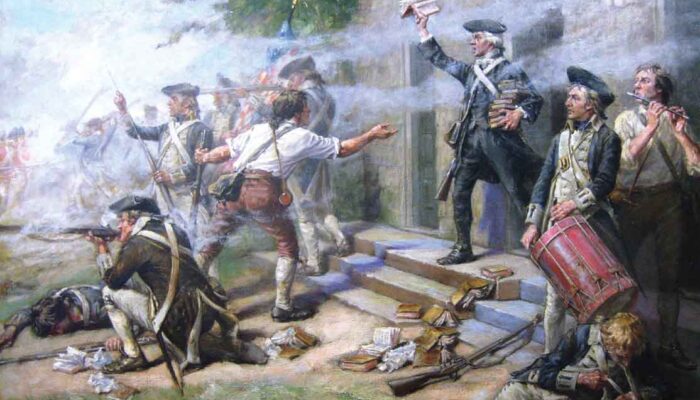
2nd Amendment has been distorted

Note: Warren E. Burger was nominated by President Richard Nixon and served as Chief Justice of the United States Supreme Court from 1969 to 1986 when he retired.
The Second Amendment does not guarantee every person the unfettered constitutional right to have a machine gun.
By Warren E. Burger
December 11, 1991
The Associated Press
The Second Amendment very briefly provides that since a “well regulated militia” is necessary to the security of the state, the people’s right to “keep and bear arms” is guaranteed.
Few things have been more vigorously debated—and distorted—in recent times than the meaning of this clause, and very few subjects have been as cluttered and confused by calculated disinformation circulated by special interest groups.
To really understand what was intended, it is necessary to look back and recall that in those days people had a great fear of a standing national army. They knew that the monarchs of Europe had held power at the expense of the people by having standing armies to preserve the status quo.
In addition, before the Constitution the 13 colonies were not really the “united states” we know today were know today, but 13 wholly independent, sovereign nations. For example, before the Constitution was adopted, the state of Virginia was virtually as independent of the other states and the union established by the Articles of Confederation as France was independent of all the other countries of Europe. Before the adoption of the Constitution, each state could and did have its own army, and each state could also maintain its own navy, as some of the seaboard states did.
The real purpose of the Second Amendment was to ensure that the “state armies”— “the militia”— would be maintained for the defense of the state.
In order to do that it was necessary to grant each citizen the right to maintain arms. Of course, 200 years ago, the musket—which was the principal military weapon in use—was a common fixture in most American households, because many Americans depended on hunting game for food. Today the “state armies” that were prevalent in the 18th century have effectively been replaced by the National Guard, and hunting has basically become a recreational activity.
The very language of the Second Amendment refutes any argument that it was intended to guarantee every citizen an unfettered right to any kind of weapon he or she desires. In referring to “a well regulated militia” the Framers clearly intended to secure the right to bear arms essentially for military purposes. In the late 18th century, the “militia” was the aggregate of all able-bodied men, and the word “militia” was defined as “a body of troops, soldiers collectively.” Moreover, even where the militia was concerned, it is clear that the framers contemplated that the use of the arms could be “well regulated.”
If an 18th-century militia was intended to be “well-regulated”, surely the Second Amendment does not remotely guarantee every person the constitutional right to have a “Saturday Night Special” or a machine gun without any regulation whatsoever. There is no support in the Constitution for the argument that federal and state governments are powerless to regulate the purchase of such firearms so that they do not get into the hands of persons with significant criminal records or mental impairments, or people who are engaged in criminal activity.
By analogy, although there is not a word or a hint in the Constitution about automobiles or motorcycles, no one would seriously argue that a state cannot regulate the use of motor vehicles by imposing licensing restrictions and speed limits based on such factors as a driver’s age, health condition, and driving record, and by recording every purchase or change of ownership.
Of course, some of these observations will be challenged by weapons and ammunition manufacturers and other members of the so-called “gun lobby.” That there should be a vigorous debate on this subject is a tribute to our freedom of speech and press, but the American people should have a firm understanding of the true origin and purpose of the Second Amendment.
Associated Press Editor’s Note: This is one of a series of Associated Press articles on the Bill of Rights and other Constitutional Amendments by Warren Burger, the retired chief justice of the United States who is chairman of the Commission on the Bicentennial of the US Constitution.
Leave a Reply
You must be logged in to post a comment.

